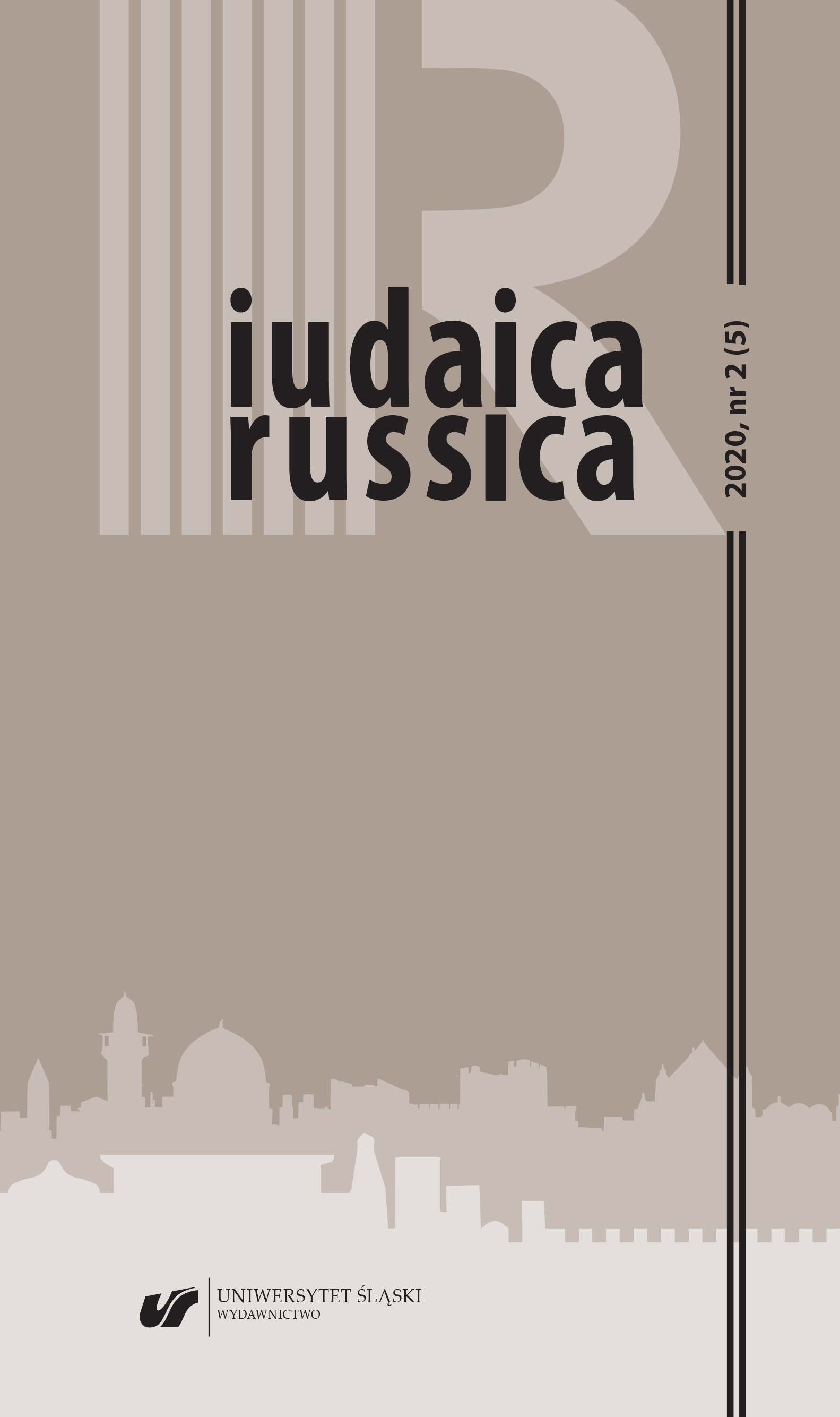Переводы польских писателей в русско-еврейской периодике второй половины XIX века
Translations of Polish writers’ literary works in the Russian-Jewish journals from the second half of the 19th century
Author(s): Batia ValdmanSubject(s): Jewish studies, Studies of Literature, Polish Literature, Translation Studies, Theory of Literature
Published by: Wydawnictwo Uniwersytetu Śląskiego
Keywords: Russian-Jewish periodical; “Izraelita”; Translations from Polish; Jewish Theme in Polish Prose; Jewish life; Jewish stetl
Summary/Abstract: In the second half of the 19th century in the Russian-Jewish press, translations of Polish writers’ literary works occupied an important place in prose. These translations included works of non-Jewish Polish authors and summaries of a Jewish weekly in Polish, “Izraelita”. The interest in Jewish subjects among Polish writers is due, first of all, to the long living side by side of Jews and Poles. In Russia, a significant Jewish population appeared after the partition of Poland in 1772, 1793, 1795, when territories with the Jewish population were attached to Russia. The Jewish theme was one of the central themes in the prose of Eliza Orzeszko, whose works were published in “Russkii evrei” (Russian Jew) and the “Voskhod” (Sunrise). She showed the life and character of Jews, their deprived position, called for the unity of Poles and Jews. Other Polish writers whose works were published in Jewish periodical in Russian — Joseph Kraszewski, Camilla Odynets, Mikhail Balutsky, Janina Baudouin de Courtenay (Bagnitskaya), Adam Szymanski. The works of Polish writers testify to their distinguished sympathy to Jews. They sought to show the peculiarities of character and life of Jews, with whom they often intersected in ordinary life, to show their deprived position. Most of all, this was realized in the works of Eliza Orzeszko, where she manifested her knowledge of Jewish life. Orzeszko’s letters are an evidence of her thorough study of Jewish sources. They are permeated by the idea of brotherhood of Poles and Jews.
Journal: Iudaica Russica
- Issue Year: 5/2020
- Issue No: 2
- Page Range: 98-111
- Page Count: 14
- Language: Russian

